TRANSLATION OF BUSINESS CONTRACTS:
OVERT AND COVERT OBSTACLES
Kozlovska Anna
Education and Research Institute for Business Technologies “UAB”, Sumy State University
Abstract. The research deals with some linguistic peculiarities of business contracts which can
cause difficulties in their translation. While translating business contracts specific grammatical,
stylistic and lexical characteristics should be taken into account by a translator. Contracts being
formal, complete, clear, concrete, correct, and concise, need special attention in choice of
grammatical, lexical and stylistic equivalents. Every step of a business deal must be supported in a
legal way, in an official form with the help of business contracts.
Key words: business contract, translation, business correspondence, linguistic peculiarities.
The interest to the problem of translating contracts is not occasional. Nowadays
countries are cooperating more on transnational issues, cross-national cooperation
and agreements are increasing, institutions are providing services to ease the conduct
of international business, more and more people are getting involved in the world of
international business relationships. As a result, our country needs professionals for
qualified translation from Ukrainian into English of official documents, namely –
business contracts which have their own linguistic peculiarities. The purpose of the
research is to reveal a specific character of business contracts’ translation as a type of
business correspondence.
The texts of official documents are highly standardized: this applies both to the
structure of the whole text (macrostructure) and to the arrangement of individual
paragraphs and sentences (microstructure) [1, p. 164]. Contracts should be formal,
complete, clear, concrete, correct and concise. The task of a translator of official
documents is, firstly, to find target language equivalents of the source text frames and
use them in translation as standard substitutes, filling the slots with frame fillers in
compliance with the document content. Secondly, a translator is to keep to proper
matching patterns of lexical and grammatical structures within the frames. And,
finally, translation of official documents requires not only sufficient knowledge of
terms, phrases and expressions, but also depends on the clear comprehension of the
structure of a sentence, some specific grammar, syntactical, and stylistic patterns,
which are characteristic of business contracts [1, p. 166-178]. So, while translating
contracts we must observe all peculiarities of grammar, vocabulary use and stylistic
appropriation.
A formal contract or agreement requires considerations of neatness and attractive
arrangement. Completeness of any contract suggests the scope of all significant facts
that have reference to the issue of the agreement. While clearness can be reached by
the use short words and phrases, concreteness involves proper grammar and
vocabulary use, punctuation and formal style. Conciseness can be achieved by
packing maximum information into a small package of words.
Active constructions of Ukrainian should be preferably replaced by passive
constructions of English while translating business contracts. Grammar of business
contracts is simple (lack of diversity of variants) and formal (the most widespread
grammar tenses are the Indefinite and the Perfect tenses). Specific vocabulary of such
kind of business correspondence should be taken into account (for example, lots of
legal terms, figures, prepositions, international words), moreover, special attention
should be paid to titles, names, addresses, references, etc. It is worth mentioning that
English contracts are full of abbreviations and they are very often used instead of
Ukrainian full forms of words. A translator can often come across bookish words
which belong to formal style of written English: therefrom, herewith, the aforesaid.
Formal business correspondence should be more impersonal, i.e. it lacks force and
vividness. One more problem is that business correspondence must be as clear and
brief as possible without sacrificing clarity: The time of delivery of the Turbine Plant
against the above contract expires on the 1st July. Please inform us by return of post
of the progress of manufacture of the Turbine. The use of words of French and Latin
origin can create many problems for translators, so they should know them and
operate them appropriately: casus contra (Latin), par excellence (French), id est
(Latin), raison d’etre (French), etc.
Nevertheless, business is made by people, not robots. So, we can find some
deviations from the fixed, accepted, formal form because of the influence of informal
English. A person’s individuality can stir a cool and logical world of business,
creating new problems for translators. But it’s a rare fact to face in business
documents as mostly words have their own exact meaning.
We can conclude that contracts have their specific character of translation as a type
of business correspondence. Linguistic peculiarities of business contracts, being
difficult to translate sometimes, have been studied as groups of stylistic, grammatical
and lexical peculiarities. Much time should be invested in translation of business
contracts as a skilled translation is a guarantee that businessmen will understand each
other and cooperate in accordance with a certain business strategy.





![Từ vựng tiếng Anh về mỹ phẩm [A-Z] đầy đủ nhất](https://cdn.tailieu.vn/images/document/thumbnail/2025/20250206/tuetuebinhan666/135x160/1209855931.jpg)






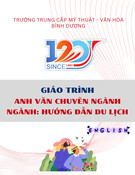
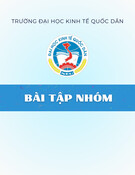

![Trắc nghiệm Tiếng Anh kinh doanh: Bài test chuẩn và [từ mô tả phù hợp]](https://cdn.tailieu.vn/images/document/thumbnail/2025/20251102/ngocanhn201@gmail.com/135x160/51201762135116.jpg)
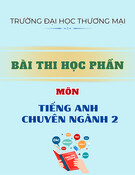

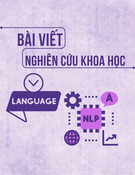
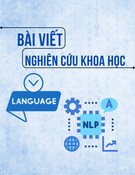


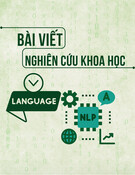

![Bài giảng Anh văn chuyên ngành Điện - Điện tử [mới nhất]](https://cdn.tailieu.vn/images/document/thumbnail/2025/20250806/vijiraiya/135x160/84061754472437.jpg)
![Đề cương ôn tập Tiếng Anh du lịch (English for Tourism) [mới nhất]](https://cdn.tailieu.vn/images/document/thumbnail/2025/20250728/kimphuong1001/135x160/55271753673317.jpg)
